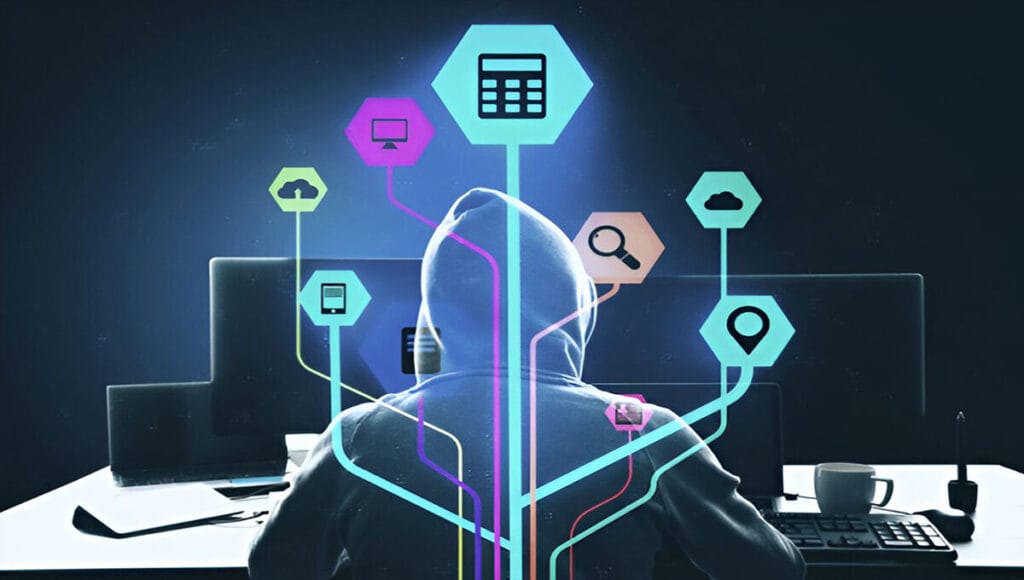The world’s AI race is heating up, and OpenAI has just thrown down a gauntlet. In a direct message to the White House, they’ve flagged China’s DeepSeek AI as a “significant risk,” urging the U.S. government to take immediate action. This isn’t just tech talk; it’s a clear signal of the growing tension surrounding China’s rapid AI advancements and the potential impact on U.S. technological leadership and national security.
DeepSeek: From Rising Star to Potential Game-Changer (and Threat?)
DeepSeek, a Chinese AI model, has been making impressive progress. It’s caught the eye of industry insiders and, more importantly, raised red flags at OpenAI. Here’s why they’re concerned:

- Lightning-Fast Development: DeepSeek’s speed of advancement is remarkable. It suggests a focused, well-funded push that could outpace Western competitors. Imagine a runner suddenly sprinting ahead in a marathon.
- The Shadow of Government Influence: OpenAI fears potential government control, raising the specter of DeepSeek being used for more than just everyday applications. Think surveillance, propaganda, or even cyber warfare.
- Concerns Over Stolen Ideas: There’s a whisper of intellectual property theft, a long-standing point of contention in the U.S.-China tech relationship. Are they innovating, or are they borrowing a little too much?
- Security Nightmares: Put all these factors together and have a recipe for security risks. It could mean the U.S. losing its edge in AI-powered defense and intelligence.
OpenAI’s Playbook: How to Keep Advanced AI Out of the Wrong Hands
So, what’s OpenAI’s solution? They’ve proposed measures as part of the U.S. “AI Action Plan,” focusing on restricting access to advanced AI technology for specific countries, specifically China. This plan aims to:
- Slow Down the Tech Transfer: By controlling access to the most advanced AI tools, the U.S. hopes to keep its cutting-edge tech from falling into the wrong hands. It’s like holding the best ingredients out of the hands of a rival chef.
- Stay Ahead in the Game: The goal is to maintain the U.S.’s lead in AI development. It’s about staying one step ahead in a rapidly changing field.
- Minimize the Risks: Limiting access helps to reduce the potential dangers of AI misuse. If fewer people have the keys, there’s less chance of someone using them for the wrong purpose.
The Bigger Picture: AI, Power, and Global Security
OpenAI’s warning comes at a pivotal moment. Countries worldwide are pouring resources into AI, recognizing its potential to reshape industries, economies, and military power. The U.S. and China are leading this charge, making it a high-stakes competition.
The security implications are enormous. AI can power:
- Next-Level Cyberattacks: AI can supercharge cyberattacks, automate defenses, and spread misinformation.
- Autonomous Weapons: The development of AI-powered weapons raises serious ethical questions.
- Mass Surveillance: AI can analyze vast amounts of data for surveillance and intelligence, raising privacy concerns.
What the U.S. Needs to Do Now
OpenAI’s alert is a wake-up call. The U.S. government needs to take these concerns seriously. Here’s what they should be focusing on:
- Invest Big in AI: To stay ahead, the U.S. must invest heavily in AI research and development.
- Team Up with Allies: Working with friendly nations to set global AI development and use standards.
- Create Smart Rules: Develop clear regulations to address AI’s ethical and security risks.
- Beef Up Security: Protecting critical AI infrastructure and data from potential threats.
- Keep a Close Watch: Constantly monitor the AI landscape and adapt policies.
Finding the Right Balance: Innovation vs. Security
The challenge is finding the sweet spot between encouraging innovation and ensuring security. Restricting access could slow down progress, but it could also prevent misuse. The U.S. needs to find a way to balance these competing needs.
Let’s Talk About It: The Importance of Open Discussion
It’s crucial to have an open conversation about the implications of AI. Public awareness is key to making informed decisions.
Looking to the Future: AI and the Shifting World Order
The AI race is just beginning, and it will profoundly impact global power dynamics. The U.S. needs to stay alert and proactive. OpenAI’s warning is a timely reminder of the need for strategic action and international cooperation.
By fostering innovation, promoting ethical development, and strengthening security, the U.S. can maintain its leadership in AI and ensure that this powerful technology is used for good.
FAQs:
What is DeepSeek AI, and why is OpenAI concerned about it?
DeepSeek AI is a sophisticated artificial intelligence model developed in China. OpenAI has raised concerns about its rapid development, potential for government manipulation, and possible intellectual property theft. They worry DeepSeek could be used for purposes threatening U.S. national security, such as advanced cyber warfare, surveillance, or disinformation. OpenAI sees DeepSeek’s rapid advancement and origin as a potential risk to the U.S.’s technological and security standing.
What actions has OpenAI proposed to the U.S. government regarding DeepSeek and other advanced AI models?
OpenAI has suggested limiting access to advanced AI technology in certain countries, including China. This proposal is part of the U.S. “AI Action Plan.” The goal is to restrict the transfer of cutting-edge AI technology to potential adversaries, maintain U.S. technological leadership, and mitigate security risks associated with using powerful AI. By controlling the distribution of advanced AI tools and models, the U.S. hopes to slow down the progression of potentially harmful applications of those technologies.
How does the development of DeepSeek AI and similar models impact the global AI race and national security?
The rise of DeepSeek AI highlights the intensifying global competition in artificial intelligence. Nations are investing heavily in AI research and development, recognizing its potential to transform various sectors. This competition has significant implications for national security because AI can be used for both beneficial and harmful purposes. AI-powered systems can enhance cyber warfare capabilities, create autonomous weapons, and improve surveillance and data analysis. Therefore, the development of advanced AI models like DeepSeek underscores the need for strategic action, international collaboration, and robust regulatory frameworks to ensure responsible AI development and deployment.